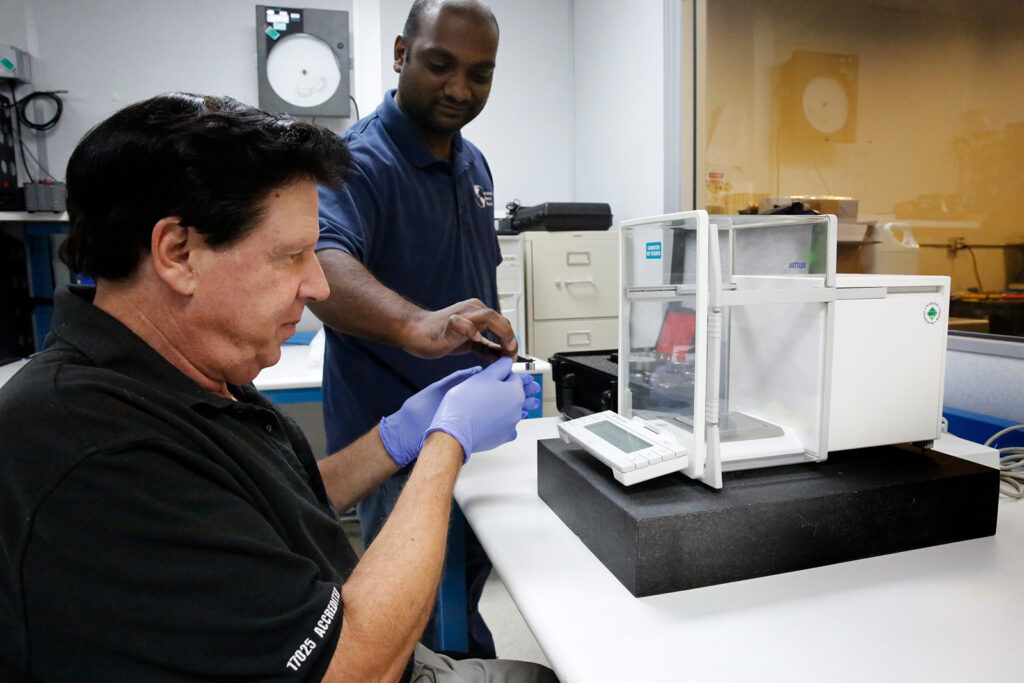In the pharmaceutical and bioprocess industries, accuracy, precision, and adherence to strict quality standards are paramount. Equipment used in these sectors, such as analytical instruments, temperature-controlled devices, pressure sensors, and mixing systems, must be calibrated regularly to ensure reliable and accurate results. Calibration plays a vital role in maintaining the integrity of processes, complying with regulatory requirements, and safeguarding product quality. This article explores the significance of pharmaceutical and bioprocess equipment calibration and its impact on the industry.
Pharmaceutical and bioprocess equipment calibration involves the process of comparing the measurements of instruments and equipment to a traceable reference standard. The objective is to identify any deviations or inaccuracies and make adjustments to ensure accurate and reliable operation. This calibration process is essential for several reasons:
Compliance with Regulatory Standards: The pharmaceutical and bioprocess industries are highly regulated, with strict guidelines and standards enforced by regulatory bodies such as the Food and Drug Administration (FDA) and the European Medicines Agency (EMA). Calibration is a critical component of compliance, as it demonstrates that equipment is properly maintained, performs within specified tolerances, and meets the required quality standards.
Ensuring Product Quality and Safety: Accurate and precise measurements are crucial for maintaining the quality and safety of pharmaceutical products and bioprocesses. Equipment used in these industries, such as balances, pH meters, and temperature controllers, must be calibrated to ensure consistent and reliable performance, reducing the risk of errors or deviations that could impact product efficacy or patient safety.
Process Optimization: Calibration helps identify and correct any variations or inaccuracies in equipment measurements, allowing for optimized process control. Properly calibrated equipment ensures that critical process parameters, such as temperature, pressure, and flow rates, are maintained within specified ranges, leading to enhanced process efficiency, reproducibility, and batch-to-batch consistency.
Data Integrity and Traceability: Calibration provides a mechanism for ensuring data integrity and traceability. By maintaining a calibration record for each piece of equipment, organizations can demonstrate the validity and accuracy of data collected during processes, audits, or regulatory inspections. This documentation plays a crucial role in ensuring the reliability and credibility of the data generated.
Preventive Maintenance: Regular calibration helps identify potential equipment issues before they impact operations or product quality. Calibration technicians can detect early signs of drift, wear, or malfunctions that may require maintenance or repair, minimizing the risk of unexpected equipment failures and costly downtime.
To carry out effective pharmaceutical and bioprocess equipment calibration, organizations should follow these best practices:
Calibration Schedule: Develop a comprehensive calibration schedule that outlines the frequency and intervals for calibrating each equipment type. This schedule should consider regulatory requirements, equipment criticality, and manufacturers’ recommendations.
Accredited Calibration Service Providers: Partner with accredited calibration service provider like International Process Solutions, that offers expertise in the pharmaceutical and bioprocess industries. These providers possess the necessary technical knowledge, traceability to national or international standards, and adherence to regulatory requirements.
Calibration Procedures and Documentation: Follow documented calibration procedures that ensure consistency and repeatability. Maintain thorough calibration records that include details such as calibration dates, reference standards used, adjustments made, and results obtained.
Training and Competency: Ensure that calibration technicians and operators are appropriately trained and competent in performing and documenting calibrations. This includes understanding calibration techniques, using calibration tools and standards correctly, and adhering to quality and safety protocols.
Equipment Maintenance: Regularly inspect, clean, and maintain equipment to prevent or mitigate potential issues that could affect calibration accuracy. Implement a robust preventive maintenance program to address any identified equipment deficiencies promptly.
In conclusion, pharmaceutical and bioprocess equipment calibration is a critical aspect of maintaining quality, compliance, and operational standards.

Our clients know and love our flexibility. We work with startups, Fortune 500s, and everyone in-between.
We’re here for you at every stage of your growth, creating the exact solution you need. Reach out now – we’d love to help. Call Today 650-595-7890
Service so good – it will make you look great.
When you email or call – we respond quickly, thoroughly, and with care. We believe your success is pivotal to our own.
We treat your company with the level of urgency and care we treat our own.
Send your best auditor our way. We will knock their socks off.
Email, call, fax, or fill out our form – whatever works best for you. We’re here to serve, and to help. Reach out now – we’d love nothing more than to connect.
Southern California Calibration Services
tel: 310-432-0665
Northern California Calibration Services
tel: 650-595-7890
fax: 650-595-7899